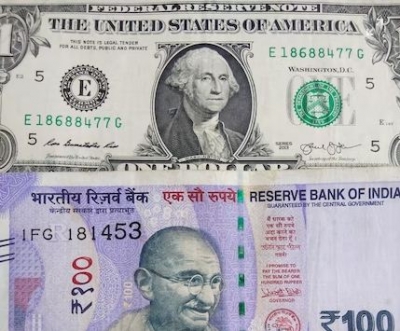Middle East tensions, high crude oil prices bring rupee to 84-mark against dollar
New Delhi, Oct 12: With elevated crude oil prices amid global geo-political situations, the rupee on Friday breached the 84-mark against the US dollar for the first time.
The rupee traded lower by 0.12 at 84.09, pressured by the recent rise in the dollar index from $100.50 to $102.40 and its steady hold. According to trade experts, the Middle East tensions continue to be volatile and are likely to keep oil prices high and the rupee weak in the short term.
Brent crude surged to $78.92 per barrel from nearly $69 on September 30. Meanwhile, foreign portfolio investors (FPIs) have sold shares worth Rs 55,000 crore in the Indian stock market in the past nine days. On Friday, the rupee climbed up to the day’s high of 83.96 but closed at an all-time low of 84.09 (provisional), 11 paise lower than its previous close. “Continuous FII outflows from Indian markets have added to the rupee’s weakness, signalling potential further declines,” said Jateen Trivedi from LKP Securities.
The rupee may extend its weakness towards 84.25-84.35, especially if it holds below 84.00. Support is expected in the 84.20-84.35 range, while resistance is seen between 83.70-83.80, said the market expert. The rupee’s movement has been gradual and steady, supported by the Reserve Bank of India’s (RBI) comments on its resilience and limited speculative positioning.
The Indian rupee continues to be among the least volatile currencies, according to RBI Governor Shaktikanta Das. According to experts, India’s reliance on crude oil imports affects the value of the rupee. The surge in crude oil prices is primarily driven by concerns about potential supply disruptions in the Middle East. Meanwhile, gold prices remain elevated, trading above $2,635 in Comex and rising by over Rs 400 to Rs 75,750 in MCX.
The key drivers for the ongoing positive trend include US data that supports the continuation of interest rate cuts, particularly due to high jobless claims and elevated crude oil prices, which indicate persistent inflationary pressures.



